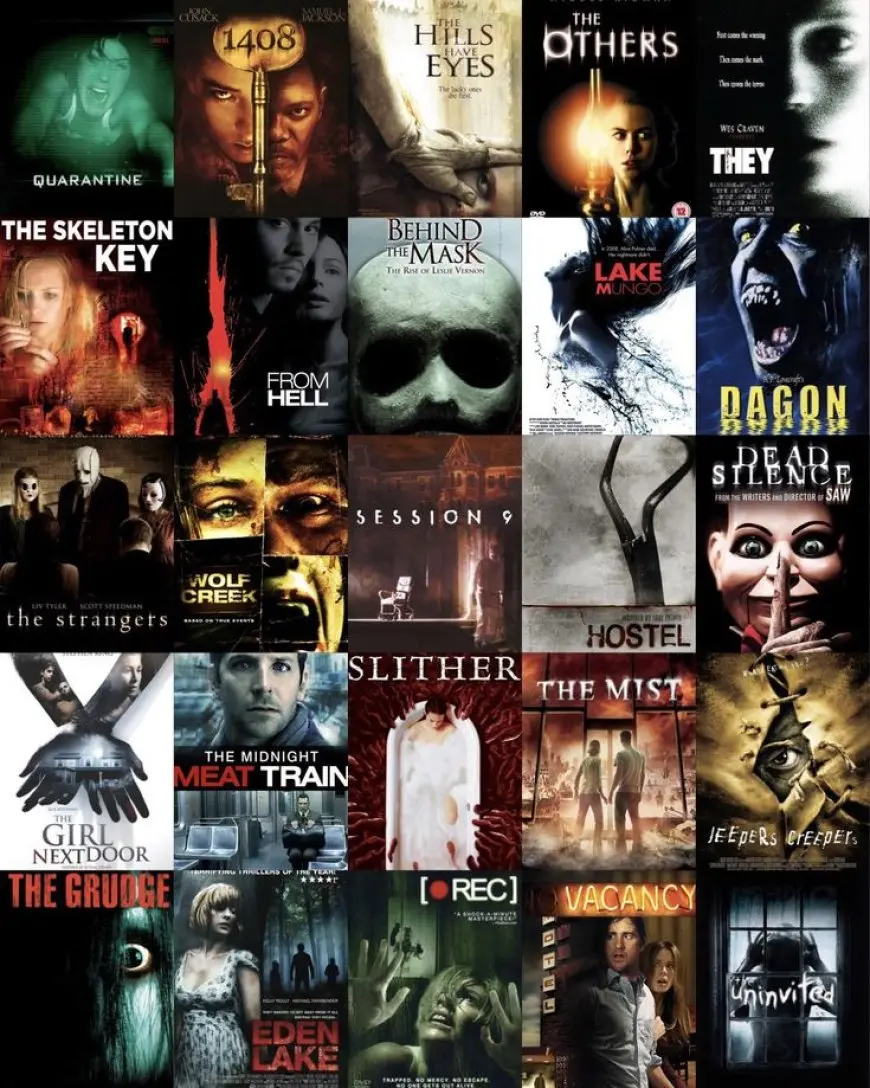Why Horror Movies Are Universally Popular
Why Horror Movies Are Universally Popular

Horror movies have captivated audiences across the globe for decades, transcending cultural and linguistic boundaries. Their universal appeal lies in their ability to evoke primal emotions, reflect societal fears, and provide a unique space for audiences to confront the unknown. From ghostly apparitions to psychological thrillers, horror films tap into the deepest recesses of human fear while offering cathartic entertainment.
The Psychology of Fear
At the core of horror's appeal is its ability to trigger a powerful psychological response. Fear is a universal emotion, hardwired into the human brain as part of our survival instinct. Horror movies exploit this reaction by presenting situations that simulate danger, allowing audiences to experience fear in a controlled environment.
This controlled exposure to fear can be exhilarating. It provides a safe space to confront the unknown, where the stakes are high but ultimately fictional. The adrenaline rush that accompanies jump scares, eerie atmospheres, or moments of suspense keeps viewers engaged and on the edge of their seats.
Cultural Universality of Folklore and Mythology
Horror movies often draw inspiration from folklore and mythology, which are deeply ingrained in cultures worldwide. Whether it’s the vengeful spirits of Japanese yūrei tales, the Gothic vampires of European legend, or the shapeshifting creatures of African and Native American traditions, these stories resonate because they reflect shared human concerns about mortality, morality, and the supernatural.
By adapting these universal themes, horror films create a bridge between different cultures. A story about ghosts, for example, may have unique regional details but still taps into a shared fear of the afterlife or the unknown.
Social Commentary Through Fear
Horror movies often serve as a mirror for societal anxieties. They tackle themes like political unrest, environmental collapse, and personal identity in a way that resonates with audiences. For instance, zombie films like Night of the Living Dead have been interpreted as critiques of consumerism or race relations, while movies like Get Out explore systemic racism through the lens of psychological horror.
By addressing these fears in a fictional format, horror allows viewers to confront and process complex societal issues without directly experiencing them. This ability to weave social commentary into terrifying narratives makes the genre both relevant and thought-provoking.
Catharsis and Emotional Release
One of the reasons horror movies remain so popular is their capacity to provide emotional release. Watching characters confront and overcome terrifying scenarios allows viewers to experience a sense of catharsis. The relief that follows a suspenseful scene or the resolution of a plotline mimics the human experience of overcoming real-life challenges.
For some, horror movies are a way to explore their fears in a safe setting, while for others, they are a source of entertainment that satisfies their curiosity about the macabre. This emotional spectrum ensures that the genre appeals to a wide variety of audiences.
Innovative Storytelling and Cinematic Techniques
Horror movies have often been at the forefront of innovation in storytelling and filmmaking. Directors use lighting, sound, and camera angles to create an atmosphere of dread that is uniquely immersive. Iconic techniques, such as the use of silence to heighten tension or the deliberate pacing of suspense, make horror films memorable and impactful.
Films like The Blair Witch Project and Paranormal Activity introduced the found-footage subgenre, while others like Hereditary and Midsommar blend horror with arthouse aesthetics. This constant reinvention keeps the genre fresh and appealing to new generations of viewers.
The Appeal of Shared Experiences
Watching horror movies is often a communal activity, whether in theaters or during a movie night at home. The shared experience of jumping, screaming, or nervously laughing brings people together and strengthens social bonds. Horror movies are particularly popular during events like Halloween, where they become part of larger cultural celebrations.
Streaming platforms have also expanded the reach of horror films, allowing audiences to explore subgenres and international titles. This accessibility has fostered a global community of horror enthusiasts, making the genre more inclusive and diverse.
The Timeless Allure of Horror
Horror movies remain universally popular because they speak to fundamental aspects of the human condition. They provoke fear and curiosity, explore cultural and social themes, and provide an outlet for emotional release. Their adaptability and creativity ensure their relevance across generations, making horror a genre that continues to thrive in an ever-changing world.







